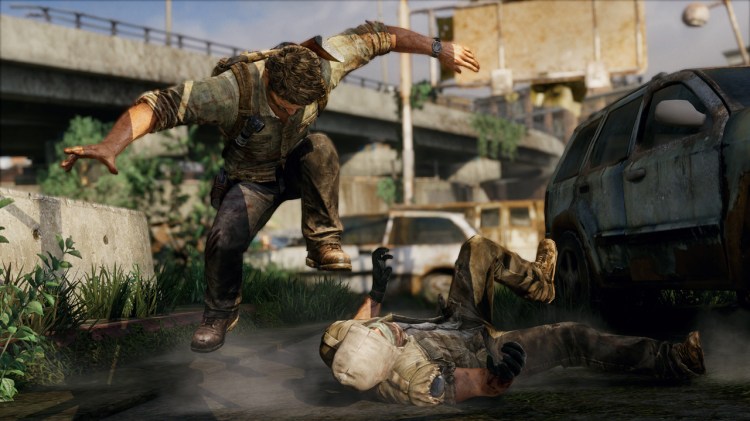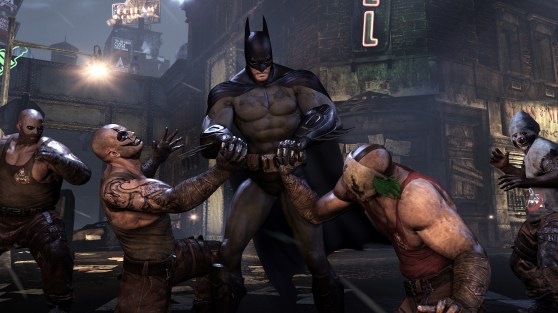This post has not been edited by the GamesBeat staff. Opinions by GamesBeat community writers do not necessarily reflect those of the staff.
The PlayStation 4 and Xbox One are hitting stores in less than three months, and you know what that means: “best games” lists! Yes, prepare to be bombarded with scores of best PlayStation 3 games, best Xbox 360 action games, best multiplatform tactical shooters, and any other variation on the concept where a writer or two summarize their magazine’s reviews of 10 or 20 games instead of doing something new. IGN fired this year’s opening shot with its list of top 25 PS3 games.
It sounds like I’m belittling it, but actually, publishing a top-games list takes guts because you’re basically guaranteed to piss someone off. If you write about Uncharted, someone will complain that you left Batman: Arkham City out (and really, how dare you?). Write about Mass Effect, and it’s, “What about Killzone 2?” The only winning move is not to do lists at all, and really, given that today anyone can go to a website’s review archive and sort reviews by rating and genre, I don’t even see the point.
But far be it from me to judge the choices made by hard-working editors. No, I’m not here to discuss the idea of a top-games list or even the choices made by IGN but rather how these decisions are made, and by extension, how video game reviewers decide which games are worth our cash and which aren’t. And if like me, you live in a place where gaming culture is underdeveloped, rental stores are unheard of, and games are severely overpriced, this is something you should definitely care about.
To see what IGN’s list has to do with this, just read the top entry for (you knew this was coming) The Last of Us. Of the two paragraphs explaining why it “isn’t only very easily PlayStation 3’s best exclusive … [but] arguably the best game of the generation on any console,” half a paragraph introduces developer Naughty Dog, and the rest is a summation of the game’s plot. Oh well, can’t go into too much detail with so little space. You really shouldn’t dwell on minor things like, you know, what you actually do in this game.
This is probably the biggest problem with the mainstream gaming media today, and it’s a big one: the shift in focus from gameplay to cinematic elements such as plot, characters, graphics, and what-have-you.
It’s not a one-time thing. Barely half of IGN’s original review of The Last of Us is devoted to the gameplay. In its summary, gameplay is mentioned in passing. But it’s not just IGN. Reviewers for GameSpot and Polygon, which awarded scores of 8 and 7.5 out of 10 respectively, based their criticism more on the nature of the characters than any gameplay issues.
Now, don’t get me wrong: I don’t hate The Last of Us. I actually like it a lot (even though I also think it is vastly overrated). I’m also very much in favor of story taking a more prominent role in video games. But the fact is that years ago, this would never happen. You couldn’t cover up significant problems with your game by packaging it with pretty graphics and interesting characters because the technology didn’t exist. Your only hope to get good reviews was to make a good game and — surprise, surprise — that’s the era that gave us Mario, Zelda, Final Fantasy, and Metal Gear. More than one person made a career from reviewing and discussing those and other titles on the Nintendo Entertainment System, and they’re also the inspiration for basically everything we play today.
Before I come off as some cranky old guy telling you young people how things were better in my time, let me say that I love a lot of modern games. In fact, my favorite game ever is Batman: Arkham City, with Mass Effect 3 and The Legend of Zelda: Skyward Sword following close behind. But all these game feature ingenious, fun, and fluid gameplay, taking qualities from the classics while purging all of the tediousness and broken mechanics. Then they add beautiful graphics and a compelling plot.
I get it: Games like The Last of Us, Bioshock Infinite, and Mass Effect deal with political, social, and philosophical issues. Ironically, the fact that the public doesn’t consider video games a serious storytelling medium has actually improved this ability. Developers should continue to take advantage of that. But that need not and should not come at the expense of gameplay.
The bottom line is, we don’t need to sell ourselves short. As a developer, you can have well-developed characters and plot while still insisting on great gameplay. Otherwise, what you get is just an overpriced DVD. And by pulling attention away from gameplay, the media serves us all ill, making it easier for developers to get away with selling us an inferior product and covering it up with cinematics.
Anyone who grew up during the 1990s remembers how common it was to rate games according to visuals when 3D graphics first came around. Let’s not let that happen again.


